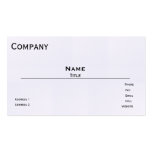Production limits
- According to U.S. regulations, a brewery can be classified as a microbrewery if it makes up to but no more than 15,000 barrels of beer per year. However, some do produce a greater number than that, though it is not statistically significant, since they used to qualify and have been grandfathered in as their production increased. A true microbrewery will be charged at a lower tax rate than its larger beer producing brethren, so it can be a sought-after classification.
Specialty beers
- Most microbreweries produce boutique or "specialty beers" that are not available from the larger companies. These could be beers made especially for the holiday season or from ingredients that celebrate the local heritage where the beer is made. For example, a microbrewery in Oregon offers Obsidian Stout. This brew is designed with a dark color that is made to look like a volcanic rock found in the area. National breweries, such as Sam Adams, also offer similar products. But these are known as "craft beers" so they are not confused with microbrews.
Beer festivals
- Most all the entrants you see at local beer festivals will be microbreweries. This is one of the ways they look to seek recognition and set themselves apart--and to increase their sales of course. With the variety of flavors and local color that these businesses offer, national brews would not stand a chance. And, of course, if the festival is sponsored by a microbrewery, they often are not allowed to enter.
Brew pubs
- Microbreweries are often attached to brewpubs. Brewpubs are restaurants that manufacture and sell their own beer to patrons. Often the restaurant will have the word "brewery" or "taphouse" in its name. This is often the initial way for a brewery to gain clientele for its product. Later, the management may consider local distribution options.
Limited distribution
- If a microbrewery does work with a distributor, it is usually local or regional. When a national company notices that a microbrewery is very popular, it may offer to buy the brewery and start selling its beers nationally. Of course, this is the end of its microbrewery status, but it may maintain some of the composition and color that made it unique in the first place.
20% OFF ALL ORDERS!
Ends Today!
Use Code: OCTOBERSAVER at Check Out
______________________









No comments:
Post a Comment